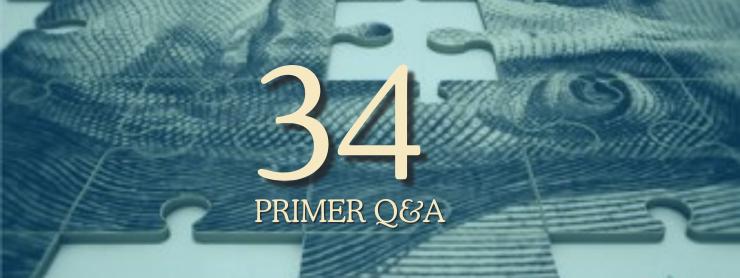Originally published February 1, 2012 on the New Economic Perspectives blog.
There were a few comments this week, focused especially on Chinese holdings. It should be clear from my post that I am not concerned about the holdings nor about a possible run. China will gradually reduce its export surplus, but it is probable that other countries will continue to want to accumulate more dollars and so will try to replace Chinese exports to the US with their own. The Dollar will remain strong, there will be no run. So here are the questions grouped into main themes.
Q1 (Neil): Additionally is there a case for having a positive domestic monetary policy and a zero monetary policy for foreign holdings?
A: I presume you mean interest rates? Warren Mosler has advocated permanent ZIRP (zero overnight interest rates) which is essentially Keynes’s euthanasia of the rentier class. With Bill Mitchell he advocated elimination of treasuries altogether—which I also endorsed several times during the US debt limits debate. So I guess my answer would be: zero for both!
Q2: (Neil) I’ve heard a couple of notes recently that Abba Lerner argued for the burden “The only really serious burden associated with government debt is that part of the debt owed to foreigners (as Abba Lerner argued.)
A: I did write about that particular article in which Lerner tore apart the “debt burden” argument (you should read it) in my Understanding Modern Money book back in 1998. Yes there can be a “real” burden if foreigners start buying US output—increasing our exports. Exports are a cost, imports a benefit. But that is if we are at continuous full employment—something we never have, of course.
Q3 (two commentators): If by ‘dumping’ US Treasuries people mean selling them, would that be a problem? Then someone else would be buying … American or Foreign. So what ?
A: Agreed. As I said, this is likely to be a very slow transformation as China and others realize exports are a cost and begin to produce for domestic consumption; in which case they won’t want dollars. And yes, I agree China has got more dollar reserves than it is likely to need to protect its exchange rate. But I suppose dollars are like nukes—better safe than sorry, so you accumulate more than you would ever need. But eventually they will decide they’ve got enough.
Q4: (steve) A Chinese company makes a sale through a distributor in the US. They receive dollars in payment. They have to pay their workers (and themselves) in Yuan. They exchange the dollars for Yuan at the central bank. Is this done at an exchange rate completely under the control of the PBC? Are the Yuan simply created by the PBC? So the dollars are now owned directly by the government? And, they exchange these reserves for Treasury securities. Must we offer this exchange? Or, could we force them simply to hold the reserves (until if/when they decide to buy something).
A: China manages its exchange rate, so yes it determines the Yuan it will supply against dollars that it credits to the bank accounts. The government only allows small holdings of dollars by anyone else in China, so yes most of the dollars go to the government—official balances.

